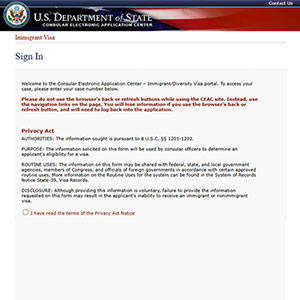U.S. immigration law allows certain U.S. citizens to file immigrant petitions for their children to immigrate to the United States. This process falls under the immediate relative category, which means there are no annual visa limits or waitlists, which is a major benefit. However, eligibility depends on a few key factors, especially how “child” is defined under immigration law.
First Things First: Who Qualifies As A “Child” Under Immigration Law?
Under the Immigration and Nationality Act (INA), the term “child” has a specific legal meaning. It doesn’t just refer to age — it also includes the nature of the relationship. USCIS recognizes the following categories:
- Biological children under age 21 and unmarried
- Stepchildren, if the marriage creating the step relationship occurred before the child turned 18
- Adopted children, if the adoption took place before the child turned 16 and meets other immigration criteria
- Children born out of wedlock, if there’s a proven parent-child relationship and legal recognition under the applicable laws
If your child is married or 21 years or older, they’re no longer classified as an “immediate relative,” and different immigration pathways (with wait times and category restrictions) apply.
Each of these affects how you prove the relationship, especially when petitioning for a father if he wasn’t married to your mother at the time of your birth, or for stepparents or adoptive parents.
Key Eligibility Requirements
To sponsor your child:
- You must be a U.S. citizen or a Green Card holder.
- You must prove the parent-child relationship through valid documentation.
- You must submit separate petitions for each child.
What Is The Process Like?
Here’s a simplified breakdown:

- Speak with our office to confirm that you qualify to petition for your child, and that your child is eligible to receive a family-based visa. Based on each of your family, immigration, criminal, and employment histories, there may be factors that could affect eligibility.

- Gather the necessary documents for your case, such as evidence of relationship, biographical information, and other relevant legal documents.
- At our office, we work to prevent unnecessary delays by providing each client with a personalized checklist tailored to their specific case. These checklists outline all required documentation and are delivered electronically via email and text message alerts for convenience.
- To help clients stay on track, we also send regular reminders until all items are submitted and the file is complete, which ensures a smooth and timely preparation process.

- File Form I-130 (Petition for Alien Relative) for each child. This is where you will submit proof of your U.S. citizenship and evidence of your parent-child relationship.
- At our office, we assist families with the completion of the I-130, Petition for Alien Relative and the submission of all required supporting documents. Our goal is to ensure that every section of the petition is completed thoroughly and accurately, and that all documentation meets current government standards.
- This tailored support significantly reduces the risk of having the petition rejected, denied, or delayed by a Request for Evidence (RFE)—helping couples avoid unnecessary setbacks and improving their chances of a smooth and timely adjudication process.

- Once the immigrant petition is approved, pay for and submit the DS-260 online visa application with the National Visa Center (NVC). At this stage, your child will need to obtain police clearance certificates.
- At our office, we assist your family member/relative with the completion of the DS-260 online visa application and the submission of all required supporting documents. Our goal is to ensure that every section of the application is completed thoroughly and accurately, and that the correct documents are uploaded in accordance with visa requirements.
- This personalized support allows families to move forward confidently, knowing that their application is being handled with care and precision—minimizing delays and maximizing their chances for a smooth visa process.

- Once the application and supporting documents are submitted at the NVC, your child will need to undergo an immigration physical/medical exam.

- Your child will be scheduled to attend a visa interview at a U.S. embassy or consulate abroad. Your child should be prepared to answer questions regarding both their and your family background, immigration history, criminal record, and employment information.
- At our office, we provide clients with a mock visa interview to help prepare for the real experience. This allows the foreign national to understand the types of questions typically asked during the interview and the reasons behind them. Mock visa interviews can be conducted by phone or virtually via WebEx, Viber, or WhatsApp, depending on the client’s preference.
- After your child arrives in the United States, their Green Card will be sent directly to our office for safekeeping. Once we receive it, we’ll promptly scan a copy for your records and mail the original to your designated address. This process helps ensure your important documents are handled securely and delivered with care.
Advice & Final Thoughts
Sponsoring your child for a green card is one of the most meaningful immigration benefits U.S. citizens can offer, but it must be done carefully to avoid unnecessary delays or denials. If you’re unsure about your child’s eligibility, or your situation involves unique legal considerations, it’s wise to consult with an immigration attorney for guidance tailored to your family’s needs.
For more information on How do I help my child obtain a Green Card a consultation is your next best step. Get the information and legal answers you are seeking by calling (281) 777-1236 today!

Call For A Free Consultation*
(281) 777-1236
